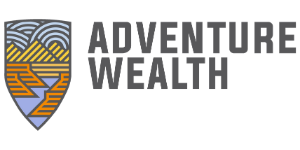It was the mantra of Accenture when I started in 2004. A carryover from the Andersen days described the culture of Accenture: we work hard, but we play hard.
It was taught from the beginning when long days spent at Analyst training at the Q Center were topped off by even longer nights at Cadillac Ranch.
The atmosphere continued on my first project at SBC in San Antonio, full of young people ready to work and play hard. It didn’t matter how late you stayed out, as long as you showed up on time in the morning.
I realized how seriously some took this mantra when a Manager on my team showed up to the office at 8 am with no sleep, reeking of the libations of last night and stumbling around our Accenture-section of the office.
Luckily, it didn’t turn out to be a CLM (career limiting move) as he just retired in his 40s as an Accenture MD!
It didn’t even take long on LinkedIn to see this culture is allegedly still alive:
I say allegedly because COVID has changed everything. The virtual environment doesn’t lend itself to such team “bonding” as in-person travel allowed.
If you attempted to live this mantra at home, your spouse would undoubtedly accuse you of having a problem. Hi honey, I’m headed out to a team event. I’ll be back at 2am; please tuck the kids in for me!
The “Play Hard” atmosphere has changed, but the “Work Hard” is probably taken even more seriously now.
Managing Directors seem to be more stretched than ever before. Many have reached their breaking point with an all-employee utilization of 94%+, always-increasing sale expectations, and the attempt to keep everyone moving virtually.
This is reflected in my meetings when MDs who don’t want to deal with it anymore are ready to play hard in financial independence.
Define your new Play Hard
What should you do if the environment has changed to a point where the play is no longer commensurate with hard work? Here are the steps to design your new Play Hard:
1. Think about life post-Accenture
If you’re a Managing Director at Accenture, it means you’re incredibly bright and ambitious. You’ve put in the hard work to succeed, and it’s not luck that got you here.
However, it also means you’ve poured your life into your career, and you may not know there’s life outside of Accenture.
The first thing to know is your title does not define you. It might even take a couple of years to redefine who you are and what you can be, but you’ll find it.
What would you pursue? Financial independence could allow you to start your own business or get more involved in the non-profit you’ve always loved. How about full retirement and traveling the world to finally use all those Starwood points (yes, I still call my Marriott points Starwood points).
2. Ensure you’re financially ready
This is the essential part of your play-hard plan. The last thing you want is to take too big of a risk and jeopardize a long and healthy FI/retirement.
You’re probably taking advantage of all the Accenture compensation programs such as the 401k, after-tax 401k, HSA, and the VEIP (actually most MDs only know about half of these).
But how do you ensure it’s enough? Saving for retirement is like climbing the mountain, and living off your investments is like coming back down. If you climb mountains, you know the coming down is the most dangerous (or so I’m told).
This is where many MDs choose to outsource to a professional to create a plan to minimize risk and use your money as tax-efficiently as possible.
Shameless plug: shouldn’t you use someone who specializes in helping MDs climb Mount Accenture?
3. Experiment before you quit
One of the best ways to gain a higher level of comfort in choosing financial independence is to experiment before quitting.
I just heard of an MD who took a one-year sabbatical to circumnavigate the world in a sailboat!! They’ll know pretty quickly if the adventurous life is for them.
Your experiments don’t need to be so drastic, but you should take purposeful steps to understand what life is like post-Accenture.
Pursue hobbies, get more involved in outside interests or take off a big chunk of time to get Accenture out of your mind.
You should plan for at least 2-3 weeks off as a one-week vacation doesn’t allow you to disconnect before you start planning your return.
In the end, it’s only you who can become yourself. No “professional” anything can help you find the purpose or path that will give you fulfillment. My goal is to simply enable you to pursue the path. And if that wasn’t the right path, then fine, you have enough money to buy a plane ticket to try another path!
You’ve worked incredibly hard to position yourself for success, why not play hard now?

